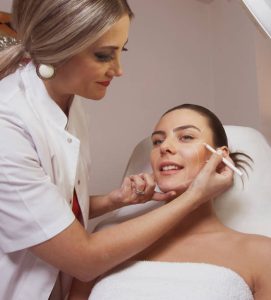Beauty, they say, is in the eye of the beholder. Yet, individuals are consistently searching for ways to enhance their outward appearance. Aesthetic surgery, popularly known as cosmetic or plastic surgery, is one avenue followed to achieve this goal. This informative article will explore the connection between these physical alterations and self-esteem boosts, providing compelling evidence that aesthetic surgery is not only a path to physical transformation but is also an empowering tool that can contribute significantly to one’s emotional wellness.
Understanding Aesthetic Surgery
Contents

Aesthetic surgery is a unique discipline of medicine focused on enhancing the physical appearance and satisfaction of the patient. This speciality can involve surgical procedures on all areas of the head, neck, and body. Underlying the popularity of such procedures, from rhinoplasty to breast augmentations and liposuction, is the essential quest of people to attain satisfaction with their appearance and by extension, their self-perception.
In modern society, aesthetic surgery has grown in prominence. It has become more acceptable as its role in enhancing physical attributes and self-esteem becomes increasingly recognized. Not merely seen as vanity, these procedures often have profound psychological effects, acting as catalysts for boosting a person’s self-confidence and self-esteem.
The Connection between Aesthetic Surgery and Self-esteem

Self-esteem plays a significant role in how we perceive and navigate our relationships, engagements, and general existence. It is an individual’s subjective evaluation of their worth or value. By feeling confident in our skin, we project a more positive image, thereby improving our interpersonal interactions.
Anecdotal and scientific evidence suggests that aesthetic surgery can foster a significant boost to self-esteem. Accepting and feeling positive about our appearance improves our self-perception, which naturally leads to an upsurge in self-esteem. This uptick could be the result of reduced self-consciousness about a previously identified ‘flaw’ or the fulfilled desire to align one’s physical countenance with their inner view of oneself.
Real-life Testimonies: A Self-esteem Boost from Plastic Surgery

Personal stories often shed more light on an issue than impersonal data. We find multiple instances where individuals attest to the positive impact of aesthetic surgery on their self-esteem. Some recount their renewed self-confidence and positive outlook on life following a successful aesthetic procedure.
A mother of two spoke of her decision to have a tummy tuck after having two C-sections, confessing that the operation increased her comfort, self-confidence, and general body image significantly. Another account is of a young woman who had rhinoplasty at 18 years old and spoke of an almost instant increase in her self-assurance due to feeling less conscious about her nose – her previous “Achilles heel”.
The Psychological Impact of Aesthetic Surgery

It is essential to consider the psychological influences of aesthetic surgery when discussing its impact on self-esteem. On the one hand, aesthetic surgery can provide immense psychological benefits such as improved body image, increased self-confidence, and better social and professional interactions.
Conversely, going under the knife can also pose psychological risks if one harbours unrealistic expectations or obsesses over perfection. Therefore, a comprehensive psychological evaluation is crucial, alongside a physical assessment, before approving an individual for an aesthetic procedure.
There exists a direct correlation between aesthetic surgery and self-esteem improvement. Whereas low self-esteem might propel the desire for aesthetic surgery, there’s often significant post-procedure satisfaction leading to a self-esteem boost following the achievement of the desired physical change.
Addressing the Criticisms of Aesthetic Surgery

Despite the seeming correlation between aesthetic surgery and increased self-esteem, criticisms persist. Some argue that it encourages a harmful fixation on physical appearance. Others express concerns about the potential for addiction to surgeries, while some simply view it as an unnatural alteration of the human body.
However, a constructive approach to these criticisms involves ensuring that every prospective patient undergoes a thorough psychological assessment and counselling before their procedure. This process helps to identify and address unrealistic expectations and provide guidance for a healthy outlook post-surgery.
The choice to alter one’s physical appearance via aesthetic surgery is, at its core, a personal decision. However, the potential of this course to serve as a source of self-esteem boost is compelling. By enhancing our physical features, we can also bolster our internal view of ourselves. Nevertheless, the importance of making informed and medically guided decisions can’t be overstressed. It is crucial to remember that each individual is more than just their outward appearance – beauty, after all, is only skin-deep. Beauty comes in various forms and self-acceptance is key, yet if a physical alteration sparks joy and enhances one’s self-perception, then it’s a journey worth embarking on.

